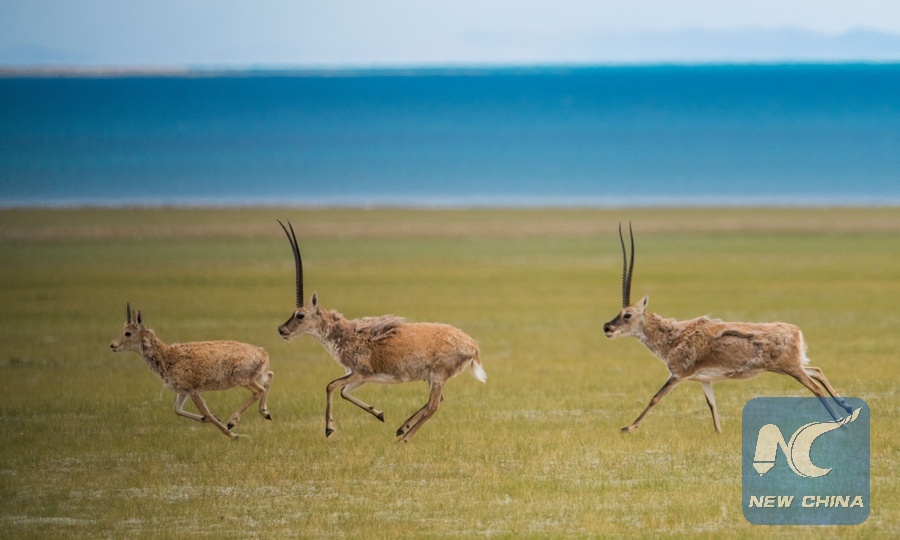
Photo taken on Aug. 4, 2016 shows Tibetan Antelopes in Xungmai Town under Xainza in Nagqu, southwest China's Tibet Autonomous Region. (Xinhua/Zhang Xiaohua)
GENEVA, Oct. 27 (Xinhua) -- The World Wildlife Fund (WWF) Thursday warned in a new report that global wildlife could drop two-thirds by 2020 as a result of human activities.
The WWF's biennial flagship report, titled "Living Planet Report 2016", measured trends in 14,152 monitored populations of 3,706 vertebrate species.
According to the report, global populations of fish, birds, mammals, amphibians and reptiles have already declined by 58 percent between 1970 and 2012. This places the world on a trajectory of a potential two-thirds decline within a span of the half-century ending in 2020.
"Wildlife is disappearing within our lifetimes at an unprecedented rate," said Marco Lambertini, Director General of WWF International.
The report identified top threats to species are directly linked to human activities, including habitat loss, degradation and overexploitation of wildlife.
For example, African elephants are severely threatened by overexploitation, habitat loss and fragmentation. New data shows that their numbers have fallen by around 111,000 since 2006, to a total of about 415,000 today.
"Biodiversity forms the foundation of healthy forests, rivers and oceans. Take away species, and these ecosystems will collapse along with the clean air, water, food and climate services that they provide us,"said Lambertini.
By providing an overview of the state of the natural world, human impacts and potential solutions, it aims to support governments, communities, businesses and organizations to make informed decisions on using and protecting the planet's resources.
Lambertini noted "We have the tools to fix this problem and we need to start using them now if we are serious about preserving a living planet for our own survival and prosperity.

